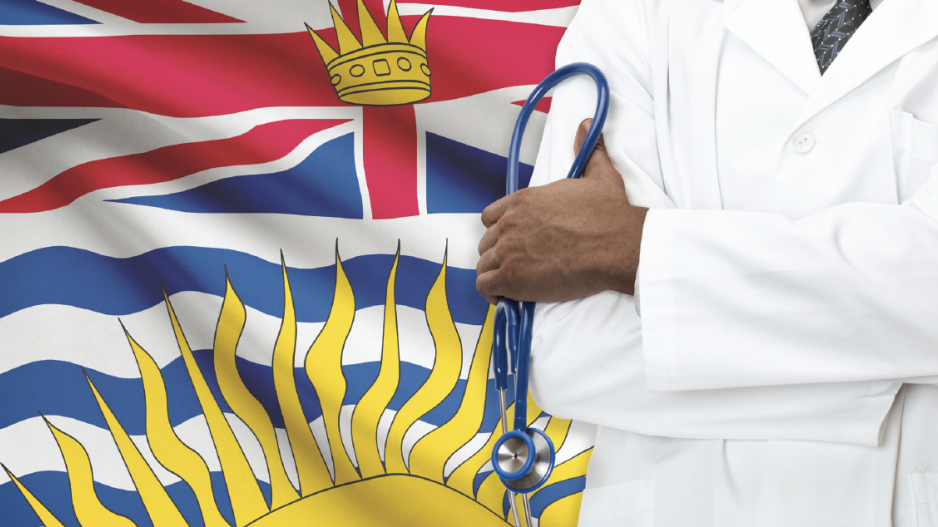One of the key attractions of B.C. in the eyes of immigrants is its highly regarded system of universal health care. While workers relocating from other parts of Canada take it for granted, it’s an attractive feature companies often mention as a reason for establishing offices here. It is also rapidly evolving into the backbone of a dynamic life sciences sector.
But there’s a cost: through a combination of historical circumstance and a desire for transparency, B.C. charges residents a monthly premium of $75 per person, although the new BC NDP government plans to reduce this by 50 per cent starting in January 2018 and eventually phase out premiums altogether.
Meet the MSP ■ Most other provinces fund universal health care through a budget allocation. Residents pay for it, but not through an overt charge. Since 1968, however, B.C. has enrolled residents in the Medical Services Plan (MSP) in exchange for a premium. The premium doesn’t flow directly to health-care budgets, prompting some to advocate for its abolishment, but it nevertheless serves as a reminder that health care costs money. Residents who don’t pay their premiums risk charges for some services. Those in arrears face action from collection agencies.
People relocating to B.C. aren’t eligible for coverage right away, however. While newcomers should apply for coverage immediately, it won’t kick in until they’ve been in the province for three months. The terms of the plan further stipulate that members must be resident in the province for at least six months each calendar year. People who fall outside the residence requirements are encouraged to seek alternative coverage through an employer, a private plan such as Pacific Blue Cross or, in the case of people from elsewhere in Canada, their home province.
There’s also an option for adults to opt out of the MSP (children must be enrolled, regardless of what the adults caring for them do). Residents who do so are responsible for the cost of all care received in the following 12 months and may be unable to access other health coverage.
Receiving care ■ Those who successfully enrol in the MSP are eligible to obtain a BC Services Card – formerly CareCard – that must be shown to receive care. Since 2013, residents have been able to combine the card with their driver’s licence, giving them a single piece of government-issued photo ID. Any visit to a doctor’s office requires a BC Services Card/CareCard. It’s also required for hospital visits and when attending tests on doctor’s orders.
Dental care and mental health services fall outside the medical system in B.C. Standard vision care, such as eye tests and prescription lenses, are not covered; however, eye surgery may be covered if medically required. Prescription medications are not covered, but registering with PharmaCare, which isn’t mandatory and doesn’t charge premiums, may ensure lower drug costs if your income falls (participants must pay MSP premiums).
Some types of health-care practitioners, including acupuncturists, chiropractors and naturopaths, fall outside MSP coverage. Cosmetic and other discretionary procedures aren’t covered, nor are examinations required for employment, schooling, life insurance or immigration purposes. Diagnostic tests not supported by scientific evidence of their effectiveness, such as prostate-specific antigen tests, are not covered.
MSP premiums do not cover ambulance services, which typically cost $80 a trip for B.C. residents.
Choosing care ■ Knowing you’ve got health coverage is one thing; finding someone to deliver the care is another. Without knowing anyone in town, many newcomers turn to the nearest clinic when illness strikes and hope for the best. Scouting out your options before you need them is helpful, however.
As with many other critical decisions it helps to have two or three names from trusted friends or acquaintances. Some doctors assist at medical clinics, and a visit may introduce you to a physician willing to have you as a regular patient. In addition, the College of Physicians and Surgeons of BC maintains a physician search tool at cpsbc.ca/physician_search. Higher-level care frequently requires a reference, so building a rapport with a family doctor you trust is important.
When it comes to emergency care, the nearest hospital is usually the natural choice. Some hospitals have a reputation for being less congested than others, however. The site edwaittimes.ca helps patients pick from among six Vancouver-area emergency departments, including Vancouver General Hospital, St. Paul’s Hospital (operated by Providence Health Care) and the UBC Hospital Urgent Care Centre. These front-line facilities are backed up by a network of institutions across the Lower Mainland including BC Children’s and BC Women’s hospitals and the BC Cancer Agency.
Vancouver Coastal Health oversees a host of local services, including home support for those who need it, while Fraser Health Authority manages its own portfolio of health centres, including New Westminster’s Royal Columbian Hospital, Surrey Memorial Hospital and the Abbotsford Regional Hospital and Cancer Centre.




